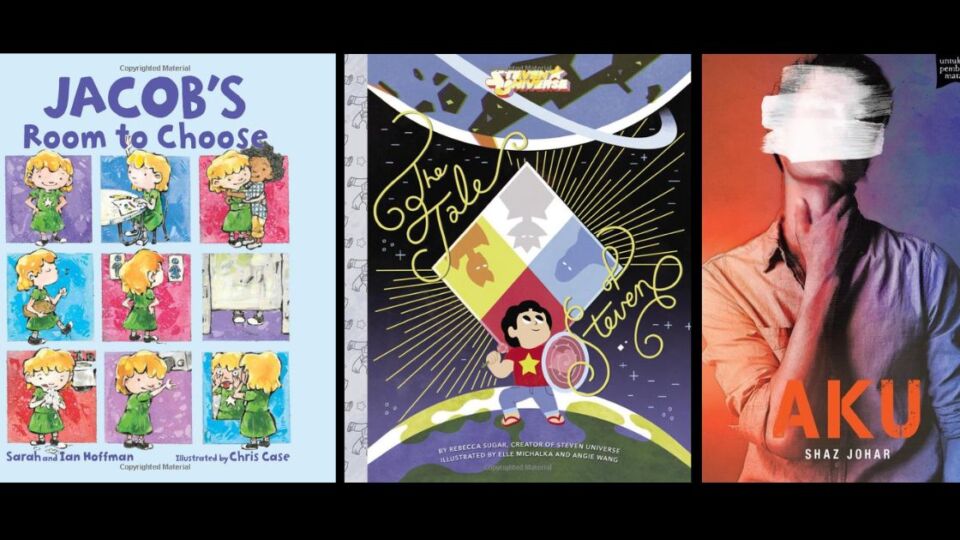Malaysian rights activists have lambasted the government’s decision to ban two children’s books because they allegedly promoted “LGBTQ lifestyles” and a novel for purportedly being “harmful to Malaysian morals.”
Muslim-majority Malaysia has seen rising religious fundamentalism in recent years, and the hardline Islamic party PAS won the most seats, making astonishing gains in the November general election.
But activists are stunned that the government of Prime Minister Anwar Ibrahim, who is seen as a liberal, outlawed these books and said he was probably trying to appease the vote bank of conservatives ahead of six state elections.
Siti Zabedah Kasim, a lawyer and rights activist, said Anwar should remember who voted for him.
“It looks like Anwar is pandering to the conservatives. He forgets that those who voted him are not conservatives,” the lawyer-activist, also known as Siti Kassim, told BenarNews on Thursday.
Malaysia’s Home Ministry announced the ban in a statement issued on Tuesday.
The children’s books banned are “Jacob’s Room to Choose” by Sarah and Ian Hoffman, and “Tale of Steven” by Rebecca Sugar.
“Jacob’s Room to Choose” is about a character, Jacob, who is chased out of the boys’ bathroom in school. “The boys think he looks like a girl because of the way he is dressed,” says the authors’ website.
The 2014 book “Jacob’s New Dress,” introduced readers to the title character, and “is one of The American Library Association’s top 100 banned books of the last decade,” according to a blurb on Amazon.com.
“The Tale of Steven” is a more abstract story about identity and finding your own way.
However, Malaysia’s Home Ministry said these books promote an LGBT “lifestyle” which is “a threat to the good values taught by religion and upheld by the community in the East.”
The novel, “Aku,” authored by Shaz Johar, was banned because the ministry said it “contained explicit and immoral content that can bring harm to personal behavior and is against the good values in Malaysian society.”
The bans are retroactive from Jan. 20. Anyone caught with any of them faces a three-year prison term, a maximum fine of 20,000 ringgit (U.S. $4,500), or both.
“A shameful act,” is how Josef Benedict, a researcher with CIVICUS, an alliance of civil society organizations dedicated to citizen action, described the ban.
“Looks like the Anwar Ibrahim government is no different from previous administrations in banning books,” he wrote on Twitter.
“Malaysian society is fully capable of deciding, without the government telling them what they can or can’t read.”
Activist Lilian Kok said the government’s ban shows it does not believe in Malaysians’ innate intelligence.
The senior program manager at the All Women’s Action Society, told BenarNews that each successive government contributes to a non-exhaustive list of materials deemed “harmful to Malaysian morals.”
Thilaga Sulathireh, co-founder of Justice for Sisters, said at least six books have been banned between 2020 and 2023 for having LGBTQ content.
“In addition, two LGBTQ music videos featuring gender diverse and drag performers are being tried in court under section 233 of the Communications & Multimedia Act 1998,” she told BenarNews.
“This also shows systemic discrimination against this group of people.”
‘Pandering to the extremists’
But these activists are in a minority in a country seeing rising intolerance, analysts said.
The results of the November national election illustrate this. The hardline Malaysian Islamic Party (PAS) won the most seats among all parties contesting the Nov. 19 polls, making it the single largest party in parliament.
What’s more, PAS President Abdul Hadi Awang was “one of the key amplifiers of divisive, racist, intolerant and hate-based narratives,” according to a local not-for-profit journalism initiative. And yet – or perhaps because of that – it made significant gains.
In such an atmosphere, said analyst Lau Zhe Wei of the International Islamic University Malaysia, the books ban may not make Anwar’s supporters happy, but the move could work politically.
“If you go by political calculations, the number of people in Malaysia who support LGBTQ is not that big, but those opposing are huge, especially the Muslim conservatives, so it is worth it,” he told BenarNews.
“Anwar would want to score some points with them. Such action, however, does not make him an extremist, although it will oppress the marginalized community further.”
Six states go to the polls soon to elect legislative assemblies. Of them, PAS gained big in the national election in three Malay-Muslim-majority states, Kelantan, Terengganu and Kedah.
Oh Ei Sun of the Singapore Institute of International Affairs said the books ban would prevent Perikatan-PAS from using the issue to hurt Anwar’s coalition’s chances in the state elections.
“Well, it would not hurt, as if they were not banned, the other side could make an issue out of it. But of course by [banning them] the government has also enraged the progressive supporters, who see this as pandering to the extremists,” he told BenarNews.
And there is no way Anwar can distance himself from the decision, said another political observer, James Chin from the University of Tasmania.
“He has to take ownership because he’s afraid of the Muslim vote in the coming state elections. In contemporary Malaysian politics, it is no longer possible to take a neutral line on LGBTQ+ community,” Chin told BenarNews.
“If you are seen as not hardline against the LGBTQ community, you’ll be accused of being a deviant. There is no middle ground as far as I know in the Muslim community. Everybody has to appear to be right-wing.”
By Ili Shazwani and Iman Muttaqin Yusof
Copyright ©2015-2022, BenarNews. Used with the permission of BenarNews.




